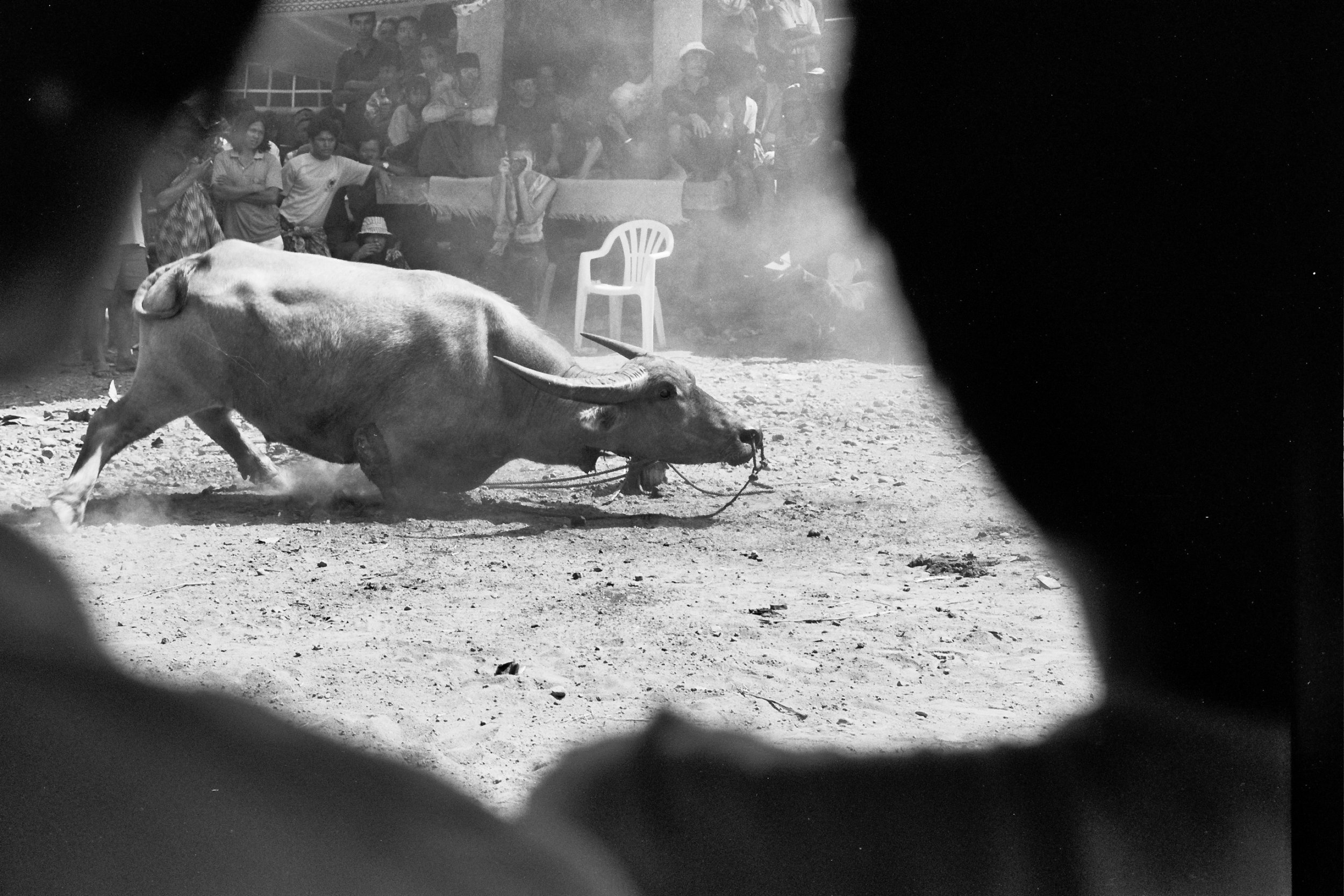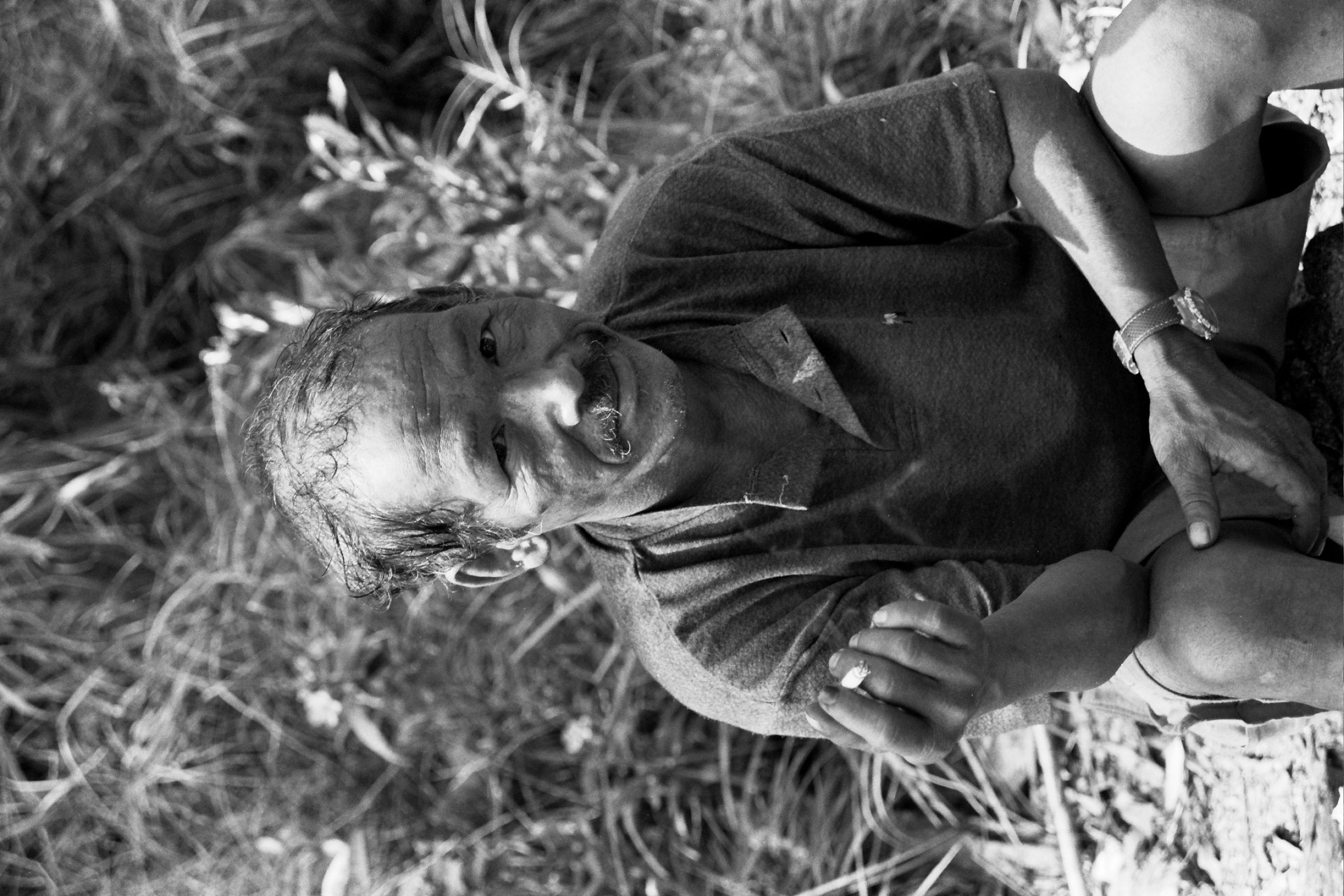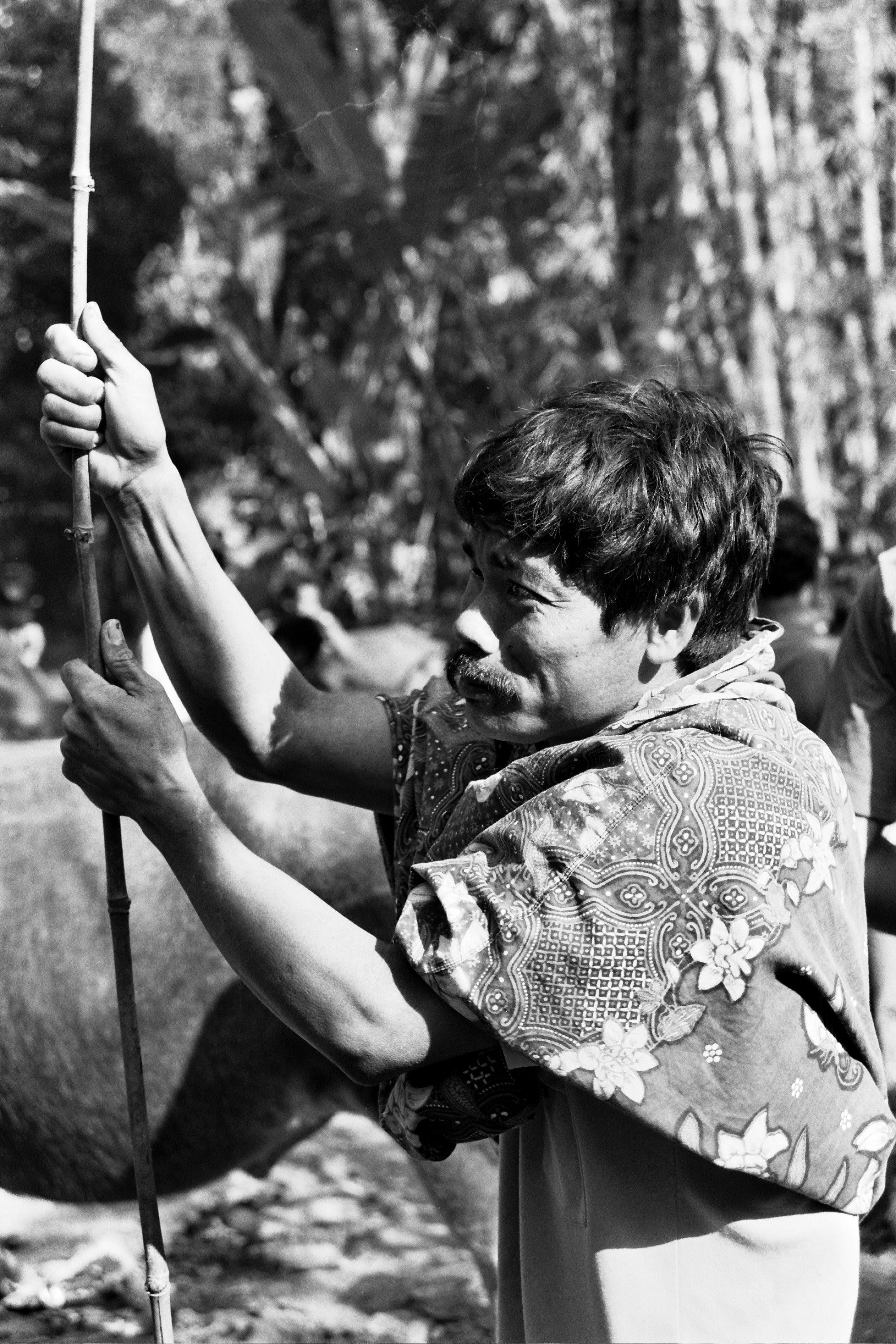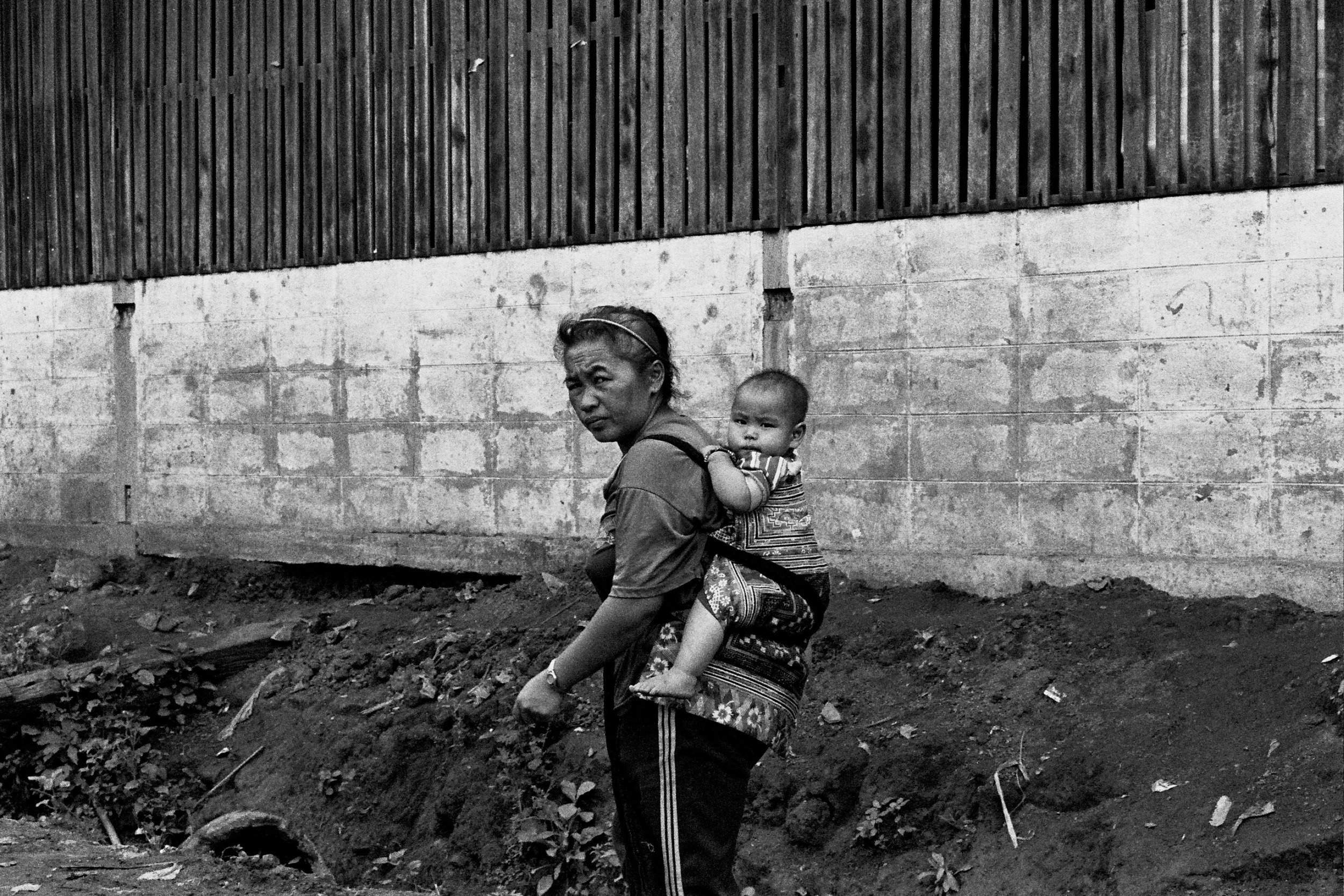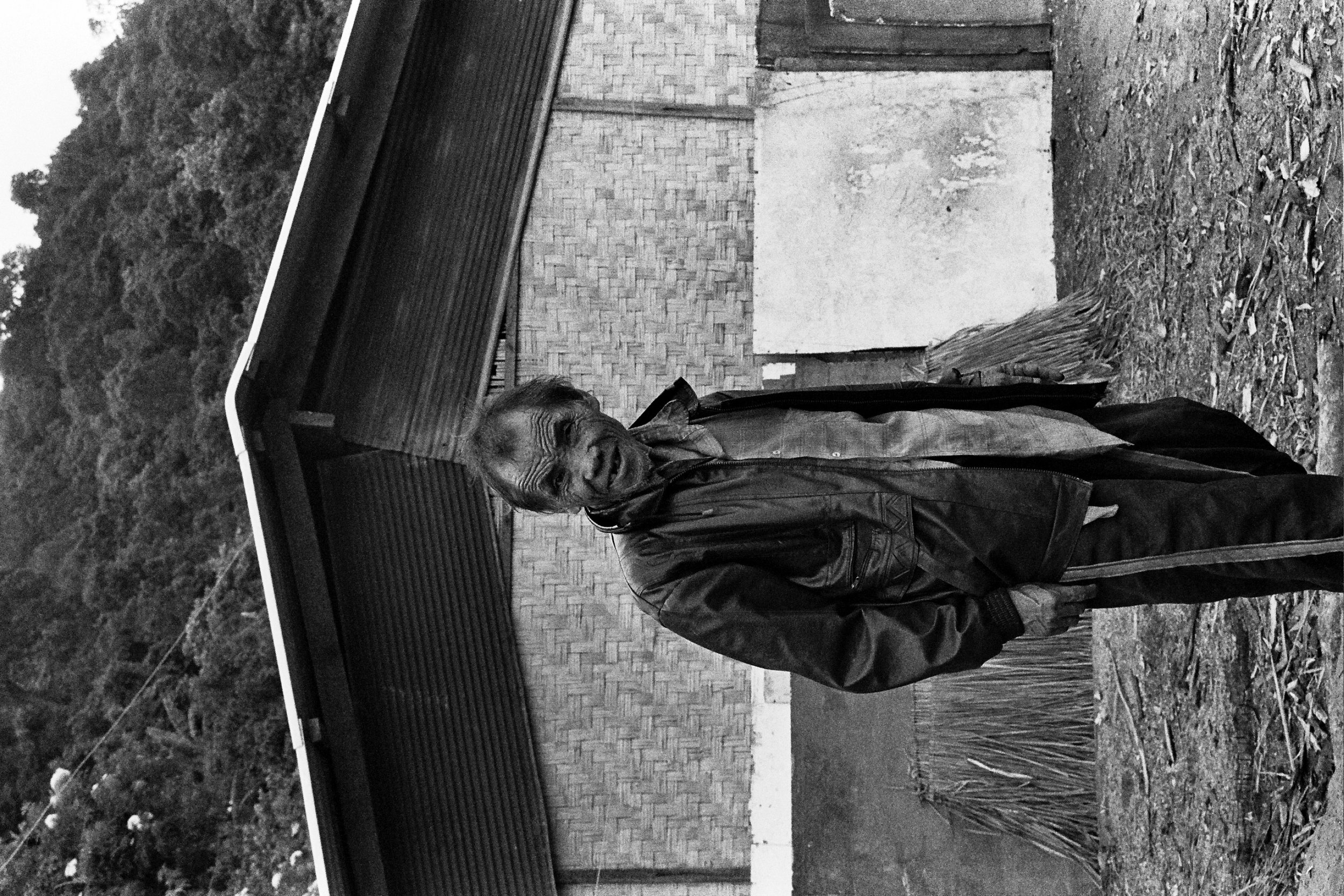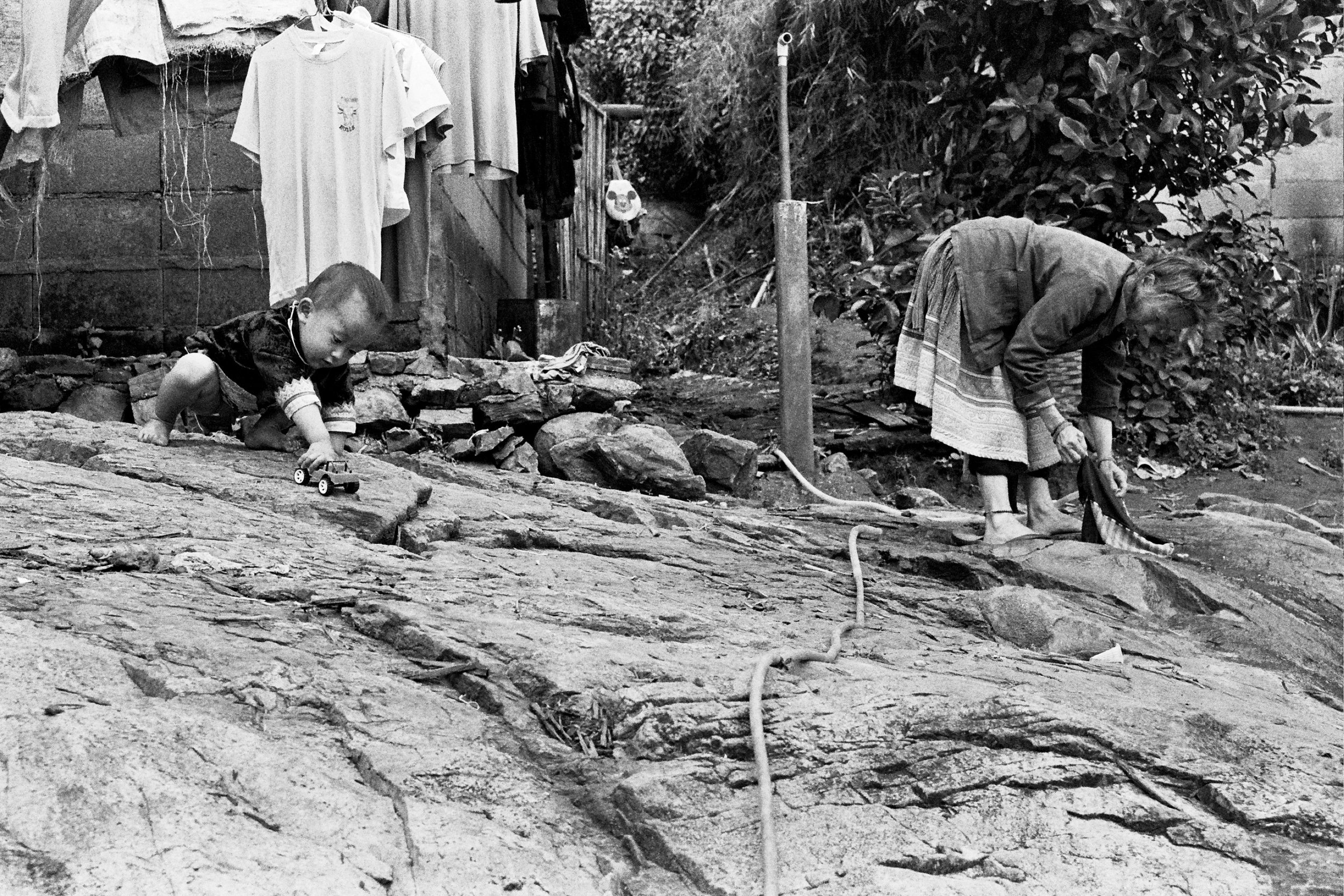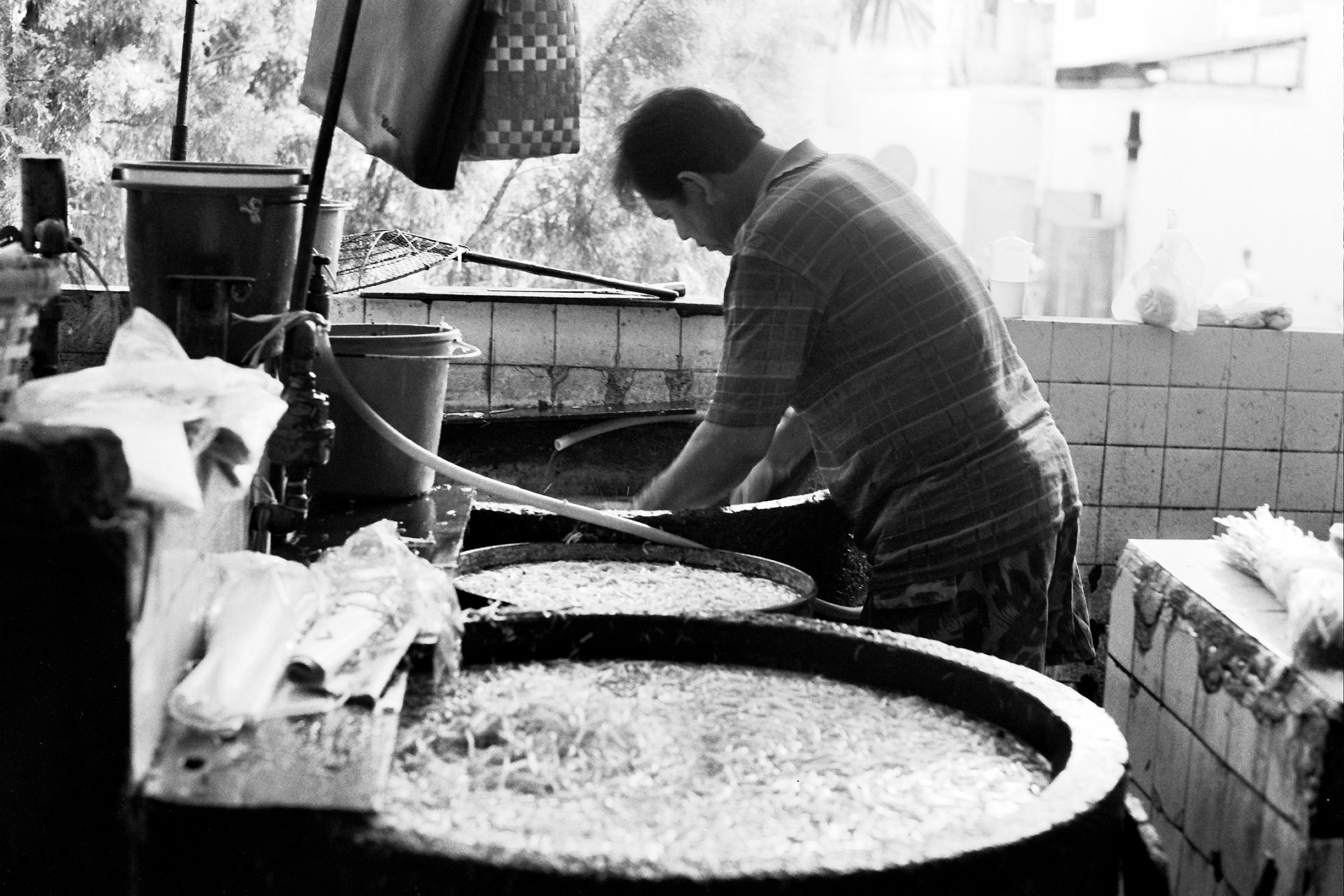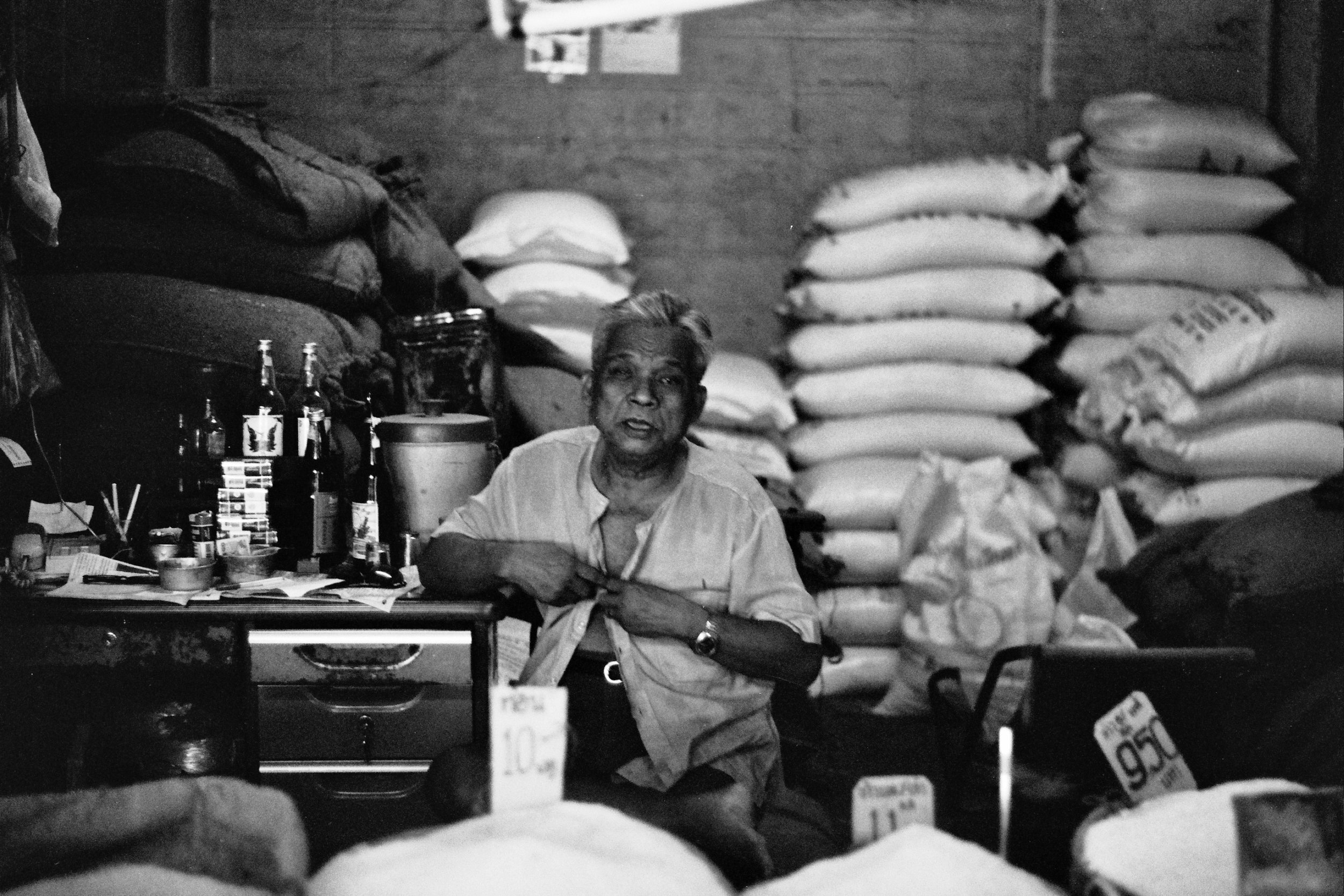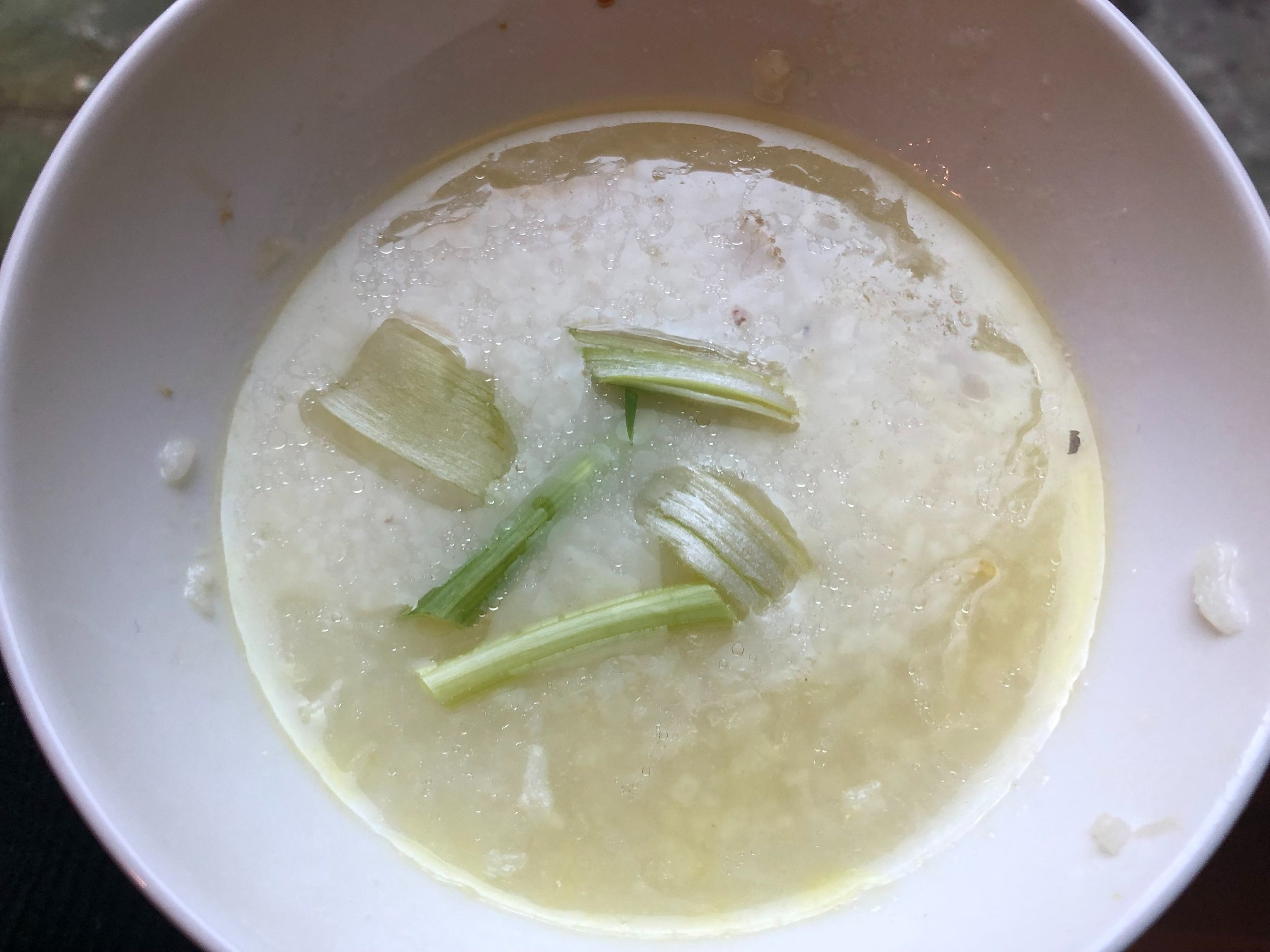Aella transcript (this has not been deeply proofread, so expect typos etc)
Ben Yeoh (00:00): Hello, and welcome to Ben Yeoh Chats. If you're curious about the world, this show is for you. What is most misunderstood about escort work, on this episode I speak to Aella there's occasional profanity in this podcast and adult themes, which makes this conversation unsuitable for children. We have a fascinating chat on the challenging questions Aella asks, her strict Christian upbringing and why she is so passionate about homeschooling, her thinking about rationality and enlightenment, and why she is a camgirl. If you enjoy this show, please like and subscribe as it helps others find the podcast. Thank you, be well.
Ben Yeoh (00:44): Hey, everyone. I'm super excited to be speaking to Aella; Aella is perhaps most famous on Twitter for shining a light on the life and economics of cam-girl and escorts and asking challenging questions, but her independent researcher is larger than that has encompassed reporting on LST and psychedelic circling the nature of faith and enlightenment, and she discusses many viewpoints of the rationalist community and I find her work fascinating, welcome.
Aella (01:14): That was a lovely intro, thank you.
Ben Yeoh (01:16): You're welcome. First question, what do you think is most misunderstood about sex work?
Aella (01:24): Most misunderstood, it depends on the population you ask, but probably a very common one is that there's no emotional component or that the guys just want to get off and then they hire a girl and then there's no additional importance beyond just the physical expression.
Ben Yeoh (01:42): So it's not just the transactional thing, there's more to it.
Aella (01:47): Well, it depends on how you define it, but it is very transactional, the thing that's being transacted is more than just sex. There's a lot of additional needs that men tend to have that are very common to get fulfilled with sex workers specifically because the men that don't have those needs go and watch porn. Because with porn, you don't need this live interaction to the same degree and so the men who tend to seek out live sex workers tend to also have additional desires that they won't fulfill emotional intimacy.
Ben Yeoh (02:19): Sure, that makes a lot of sense to me but that's also partly because I've read your guide, which you've written recently to escorting which covers pricing, marketing, safety analytics, all great practical advice. But it's also part essay I found and you had a section on what I think you called the heart or the heart of escorting and I'm intrigued about this heart because it's not quite what I might have expected and critics might suggest perhaps there's a bit of romanticization in it. But I think your reflection seems true to me that there is more meaning in sex work, there's the emotional part and there's the other part of all of that and I was just wondering how true it is from your experience and what you've seen in the wider community and maybe you'd want to reflect on that heart of escorting work.
Aella (03:07): I think it depends per person again; most of my answers are going to be hedged like that. But I think for me, I have the ability to have love in this way because I'm so compartmentalized about escorting like when I escort versus not escort. It's almost like there's two separate ME's that do it; there's the escort me and then the not escort me and there's a mode that switches and that feels very protective, like when I'm in that mode, I don't have to worry about feelings or what this means or if I'm making a good decision about sex work, it's a job. I become job mode and then when I'm in that job mode, I feel sufficiently insulated from myself that I feel it gives me the freedom to be able to bond with these men in some ways, like a part of me is I feel safe enough to be vulnerable in some way with them.
Aella (04:00): And so, for me, I enjoy that. I enjoy looking for the ability to be vulnerable with men, some of them don't feel they give me very much of an opening, it seems they want me to be something, but I like looking for it and taking it where I can find it and some people are good at doing that. That's me specific, a lot of escorts don't feel the same way, other escorts have different ways they approach compartmentalization, some don't compartmentalize, some find a lot of effusive like bonding vulnerability without having to do the compartmentalization thing, so it's different for everybody.
Ben Yeoh (04:43): Sure, but for you there's, I guess, a persona as well in this compartmentalization or is it just another version of the you that you think is you.
Aella (04:43): I'm not sure what the difference is, I feel we are sort of our environment in some way. If you put me by my parents, I've become an unrecognizable person and if you put me in front of a crowd, I change and it's not like I'm going to become like a crowd Aella or like parents Aella, it's a reaction to the incentives in the environment. And so, it's a natural response to optimizing for the situation you're in, so the Aella that escorts are very different and I wouldn't say it's a conscious persona in some way, it's just an organic persona, it's just what happens when I'm in that situation and it is very different from this Aella, I have a body language changes and my tone of voice changes, I seem a little bit less nerdy and a little bit more feminine but I don't consider any less real in some way. I am self-protective in some way but I wouldn't consider it not genuine or something, I am dishonest sometimes when escorting like, if somebody asks me what they think of their penis, I sometimes am very dishonest about it but in general, yes.
Ben Yeoh (05:51): And that's presumably because you're always flattering.
Aella (05:55): Yes, or sometimes even the opposite way. Sometimes guys who have big dicks are very insecure and I realize if I try to tell them that their dick is big, they're not going to believe me, so I have to act chill about it; it's pretty good so it's in both directions.
Ben Yeoh (06:10): That's quite subtle, that completely makes sense to me because I always say it on Christmas dinners or festive seasons this is where often you're trying to be two people at once. Like if you're trying to be a girlfriend and a boyfriend and a good son or daughter and that's it because you aim to play the daughter and you aim to play the girlfriend and often that's conflicting personas slightly. And so that's why I think you get so many arguments and those sorts of things because people end up trying to play two or three things at once and at a point in time you sometimes can't be those two things, so something slightly cracks and you get all of these arguments.
Aella (06:48): And that's a fascinating theory.
Ben Yeoh (06:51): And you can see it and you often the outsider will see it with close family like if you're invited to a family gathering or whatever, and then you can see it because you can see them, their boyfriend/girlfriend there but now they've been dragged away. And now they're having to try and be the son and they've got different pressures, but you can almost see the tension in what I say because I would normally say this in front of my parents, but I would normally say this in front of my partner and it all splinters.
Aella (07:18): I haven't paid close attention to that, I'm about to go to a large extended family gathering so I will use your theory.
Ben Yeoh (07:25): Particularly with those who you know you've just been this other person and now you can't evolve both of those personas at once and that leads me on to you seem utterly brilliant at asking questions and your questions are awkward, challenging, silly, funny, deep, and kind and they range from your surveys and polls to your dating form. And I was just wondering, how do you think of your questions and you seem to have so many, probably not in danger of running out but do they just occur to you, or is this how your mind works in the curiosity of what makes people, people?
Aella (08:00): I guess that's the way my mind works at this point; it's just such a habit now. I feel like the question is why is everybody else not doing Twitter polls, to me it feels like coming up with questions all the time. To me, it feels like the obvious thing that everybody should be doing, and then sometimes people ask me why do you do questions? Why is that the question?
Be Yeoh (08:23): Why aren't people doing more questions, everyone else is weird, I'm the normal one here.
Aella (08:28): I know I'm the normal one. A lot of my tripping or something a lot of the themes around this were finding the right question. It wasn't so much about finding the right answer to your questions but rather figuring out how to look in the right direction. Because a lot of our questions are hedged in by what the invisible norms that we have in the society around us that we can't even see and so to me new curiosity feels like it's an indication of poking at the invisible walls. And it's almost not the point what the answer is, the point is the poking and so I get a lot of thrill out of that and I don't know how to answer for why I seem to do this more than other people.
Aella (09:10): Part of it is Twitter. The fact that I do have a very fast response thing, like if I'm having a conversation with somebody and you're like, man, I wonder if people who are more agreeable tend to be firstborns more; we can just check that fast, um, through Twitter. And so, I think having that fast feedback thing helps increase the amount that I think about Twitter questions and my Twitter questions, I mean, my proxy questions in general so, that was all also very useful.
Ben Yeoh (09:36): And did you have that as a teenager as well or did that develop as you came onto Twitter as well?
Aella (09:42): I think it developed on Twitter; I do think that I was into questions when I was a teenager but not in the same manifestation. Right now, the manifestation is social questions like what generates interesting social confusion or social conflict whereas as a teenager, it was more figuring out philosophical questions that I didn't register as being socially controversial.
Ben Yeoh (10:05): Sure, I see and if anyone listening is interested in questions, you can go to askcole.io, I think. And there's a bunch of questions there and you can buy the questions or I think you can...
Aella (10:16): We're out of stock, but we do have it downloadable for free.
Ben Yeoh (10:20): There you go, find out more or I think there's at least over a hundred; I have skimmed them more than we might ask a couple of them later. So that also leads me to think because you are known as well for a lot of your rationalist thinking and being a part of some rationalist communities. There is also a lot of curiosity. How did you fall into rationalist thinking?
Aella (10:43): A long time ago I dated a guy who kept sending me LessWrong articles [a rationalist website forum] and I was like whatever, I'll read it later and then I started reading it and then they have interlinked and I started following the interlinks and then it was no going back from there. I suspect it falls close to the questioning thing because there's an orientation that not just a lot of people have which is decoupling your moral response from questioning a thing. A lot of people in the rationalist community used to be religious, I used to be very religious and I had this wake-up shock, I'm not sure if you've ever had a very radical mental change.
Aella (11:23): But realizing that a lot of things that you took for granted that were tied into your moral sensibilities were wrong, like I used to be disgusted by gay people but I'm embarrassed to say that about me in the past but I genuinely felt I'm horrified by the fact that people like two men could kiss each other; this is a moral. So that turned out to be wrong, I no longer have that moral discussed response, but now whenever I do have a moral discussed response, I'm like, well, I can't trust that like once one was proven to be incorrect. And so, I think, this is driven by the questioning, this curiosity, like curiousness about your discussed response where is that coming from?
Aella (12:02): Does that hold up if I change the circumstances in various ways? So asking a lot of hypothetical questions about how your moral intuition handles this alternative role or this alternative role, it tests to see if this is just something people told you to feel and now, you're feeling, and it feels like your own because so much of what we feel, feels like our own. But anyway, this is something that the questions do very well, but also rationalists are very interested in doing; very interested in sousing out exactly why we think about the world and what is justified.
Ben Yeoh (12:31): I hadn't appreciated that, in some ways, it is a counterforce to being like you say, a lot of rationalists used to be very religious, already had a set of values tied into them, and that there's been a complete change. And therefore, you can question everything because something that you took as a hundred percent truth, when you learn that you don't think is a hundred percent truth more within, you can then question everything which was a hundred percent truth and I didn't appreciate that about.
Aella (12:58): I suspect it's similar to psychedelics too; psychedelics do the same thing where they knock out things that you thought were true a little bit, they shake the foundations of your belief, which generates a lot more questions than questions about who you are, it’s a very similar principle, I think.
Ben Yeoh (13:11): So, that's another strong, long strand in your writing investigates spirituality and enlightenment, you've got these set of enlightenment interviews and research that you're continuing to do and although I can see it now, it almost seems to me that's potentially a conflict with a rationalist point of view looking at that, but I can see while if you take the rational point of view that it's questioning then maybe not. But I was interested in why there is such a deep fascination there and what have you learned or are you learning from interviewing so many self-feed enlightened people or people who feel they've reached a certain level of spirituality or thinking there?
Aella (13:54): The interest in spirituality came well, I had some strong spiritual experiences and pretty isolated from the spiritual memeplex, there's a map that people have made about what spiritual experiences mean, what and where they land and what comes before and after and I had gone through my thing independent of this. So it looked a little bit weird and also, I had no idea what was going on with me in regards to the way that other people understood it so I started talking to some prominent mediators about this to get insight and then eventually I heard, I just talked about other things and then I started hearing them disagree with each other. I talked to one monk who told me that another, a very famous meditator, was full of bullshit and thought that they knew what the progression of meditation was, but had no idea.
Aella (14:46): And then that made me fascinated. I was like, there's something going on in the spiritual realm or whatever, but everybody seems to have very strong opinions about it and in different directions, so that made me want to figure out what people meant by the word enlightenment. I use that word as a hook but I explore a lot of things close to it, like awakening or stream-entry and so are people like, what is your experience with this and people have done this before but I wanted to come at it outside of the spiritual memeplex because I'm mostly untainted. And I try to protect myself from exposure to that, just to see if the patterns that I organically observe happen to align with what already exists or just to put my spin on it, I don't know, to see if I can detect my own patterns. So, I talked to a bunch of people who claim to be enlightened to have to try to figure out if there was anything, how they disagreed with each other mainly.
Ben Yeoh (15:39): So that's almost like a rationalist framework approach to it or does it not square with your rationalist thinking as well or it's a completely other thing for you?
Aella (15:47): Well, it depends what you mean by rationalist; rationality is the practice of attempting to minimize bias and make predictions and the enlightenment thing is pretty hard because it's outside of the realm of predictions. Enlightened people don't make predictions better than other people, so it's outside the scope of rationality to some degree and a lot of rationalists consider this to be an irrational thing like coming out of a lot of biases. So there's some disagreement there inside of the rational community, for example, one concept of rationalities that the map is not the territory, the word is not the concept. We're using these references to this landscape of concepts.
Aella (16:34): And a lot of people get attached to the concepts and the words. When I first got into rationality, I was pretty tribalistic and I was anti-feminist and I once asked somebody are you a feminist, wanting to know am I going to be an ally or not? And the person responded, this was a rationalist being like, I don't know what you mean by that word, what concepts and this is rerouting from the per-formative layer into what are we talking about? They name the concrete thing and I'll tell you if I support it or not and so there's something that was a rational skill that I took to the enlightenment thing, I'm not looking to find out is it or isn't its enlightenment? This is just a word that people are using to refer to a landscape of concepts and my interest is the concepts, not the word like I give a fuck about the word, so that would be an example of the way that rationality related to that inquiry.
Ben Yeoh (17:26): That's interesting because I viewed that sometimes rationalists seem to me that I'm not super close to the communities. There's not as large a community here in London, in the UK but potentially a little bit narrow in where they look because of that and therefore not as rich as those who look beyond that. But like you say, some of it is beyond the bounds and I hadn't quite appreciated your point about the map and the territory of that, well you got to try name and articulate the thing and then know about, are we talking about the same thing or not; not just the word on it. And is that then intersectional about what psychedelics and other things have taught you because you've taken quite a lot of psychedelics and for quite a period and that again seemed to be quite an eye-opening or pivotal point in your life and thinking, and is that a third pillar or does that interweave with how you're thinking about rationalism frameworks and how you're thinking about your life?
Aella (18:28): I'm not sure about the third pillar, like psychedelic rationality, and what was the third?
Ben Yeoh (18:35): Well, I guess was this enlightenment/interest in that otherness or faith spirituality part; however, you want to name it? I was just thinking that psychedelic initially, at least in my thinking was perhaps again, something slightly apart from rationality, quite hard to explain, you got very personal and different experiences, the framework for talking about it is quite tricky, doesn't seem to fall into a rationality framework that easily, or I'm mistaken and that you were going to explain to me how it might fit in quite neatly. I was just intrigued because you've written quite well about it in terms of your essays and are quite open but articulate it quite well, so I was just fascinated by your experience.
Aella (19:22): I would say the psychedelic for me is quite tied into the interest in spirituality; my spiritual experience is I think a direct result of my heavy psychedelic. A lot of rationalists are; I just had a moment of delight, I don't think I've ever been on a podcast where people ask me about the intersection of rationality and psychedelics, this is so cool; sorry, that aside.
Ben Yeoh (19:45): I'll try and make it in your top three podcasts ever then.
Aella (19:51): Serious points for the novelty here. The novel is just what do girls do to get more money, [on] only fans. So a psychedelic, let's see, there's a lot of distress about psychedelics in the rationality community, but I think that this comes from a chronic misstep of failing to see that you doing the thinking is part of the thinking. There's this separation of I'm going to figure out the truth, me and the truth are separate, and I'm going to discover it or something and then there's some subtle mental move that people do, where they don't consider the sensation of having a concept to be part of that concept, almost a creation of that concept and so that's where some of the schism comes in with rationality and psychedelics and spirituality. But for me, I got into psychedelics before rationality which was a good idea. I'm not sure but it worked out well for me.
Ben Yeoh (20:56): Well, both aspects seem to sit well in you and you talk about compartmentalisation, but they do seem to coexist quite nicely or at least in your essays and things; think about that and on the rationality part. So a lot of rationality community people to me seem to be quite into EA effective altruism type ideas as well. And that expands often, a lot of them seem to me to be not only giving away their money say but also into vegan and vegetarianism, is that something which has interested you in that part or are you that's an expected value thing on moral decisions and doesn't compute as well with you?
Aella (21:39): When I was taking psychedelics, I became a vegetarian for two years because I felt empathy for animals and all that and then stopped being a vegetarian when I decided that I was okay with killing but that's a more difficult thing to explain. I support EA, in general, it seems they're doing a good thing for the world and mostly having fun doing it.
Ben Yeoh (22:09): But do you consider yourself an EA yourself?
Aella (22:12): No, I don't, maybe it's just uncharitable, but I view them as a little too uptight for me. I like a little bit of a wild and controversial, like taking my clothes off and they're the kind that wear suits and try to look nice.
Ben Yeoh (22:32): And are the many rationalists then like, there's a wild subpopulation of rationalists as well as the nerdy VA types.
Aella (22:40): There's the post rationalist which is a little bit of tongue and cheek firm for rationalists who like rationality, but is also being embodied and doing weird things with their brains.
Ben Yeoh (22:52): Well, this is a good point to ask all questions which is; which of your habit's conflicts with your values and I've been thinking more than the fact that for me eating meat is probably one of my moral failings thinking that I probably should, or I believe that we should treat animals better, yet I could probably not eat them and I do, although I'd be completely fine. I have killed to eat and that thing, I'd be okay as a hunter-gather. [] I don't know what it might be for you. Are any of your habits you think in conflict with your values?
Aella (23:32): Probably the same, maybe the meat-eating thing, but part of the thing is I have quite a bit of self-compassion, so I don't feel like that much in the conflict that often, occasionally I do, but with the eating thing, I've come to terms with it. It's also an indication of compassion for other people who do horrible things, so much throughout history. People are like, man, it would be moral or you could imagine them saying it would be moral, not to have slaves but it's just so inconvenient and so if we can do this on a very small scale and it feels good and normal, it shows how the other people have committed atrocities in the past were also very human and doing very reasonable things.
Ben Yeoh (24:13): That's very true, I think this is one of the things about the time we are living in or considering or the time slavery's quite a good example. If you go back 300 years or so a fair amount of time or even only 150 so years, and you said you were anti-slavery, you would've been the weirdo, you are in the minority and you would've defined it; tough going. So I think today, I am still quite sympathetic for these minority and weirdo views because I'm not certain exactly, which are the ones that are going to turn out to be the ones we view as very moral, today you are anti-slavery, that's a thing but 200 years ago, I'm not sure everyone would've necessarily come to that position.
Aella (24:59): There's a thing where I feel I wish we had more of a focus on argument archeology, where we focus on the arguments for horrific things at the time, like things that were widely accepted and what the discourse was like. People were talking about this and making arguments for the horrific thing and so there are arguments against women's rights and pro-slavery that are quote-unquote like, well seeming to be clear for those listening. I do not endorse slavery, I do not find the arguments to be valid, but if you were at that time, you weren't educated in morals whatever, if you didn't think hard about it, they seemed convincing. And I wish that people were aware that people didn't commit atrocities just randomly, because they were bad, but that they were held up by these arguments that seemed good. And it just seems so important for our understanding of current moral issues. Right now, we're probably going through several atrocities that we're not aware of that are propped up by arguments that we consider to be good.
Ben Yeoh (26:00): And that's exactly my point, going on the slavery one if you go back to something where we feel distant to so 2000 years, so no one can blame for that. I remember reading about it. I think it was the Babylonian king and we have the code or the codex of Hammurabi and he specifically gave a price for slaves, I think it was 10 or 20 [silver shekels] and female slaves were worth less than male slaves. Then you went up to the equivalent of the middle class and gave specific values and it was codified in law, so you would've been breaking the law had you thought differently on that. Have you given even male and female slaves equality, you would've been not only extremely weird, but you would've been breaking the law and the thinking of that.
Ben Yeoh (26:49): And so, 2000 years seems almost incredibly long in some respects or not, but that is how far we've evolved, at least in our social and moral thinking but we don't have very much evidence at that time, but we have it in the Kodak. That thing would mean a lot of arguments for that time. I see that's quite a good segue into thinking about school and I was wondering what you thought about home school or unschooled or generally educational institutions because your experience was quite different but grown-up has a Christian homeschooler, but I guess in a slightly more fundamentalist type of experience and way. But I think a lot of your essays have also been quite critical about the institutional thinking you get in, say a more mainstream type of schooling on that. So I was thinking, what do you think about the advantage of an unschooled/home school type of thing and how it viewed you and does some of this more, I guess, it's critical thinking about the way we are, the way we have been spring from having a fewer rules-based approach to learning that you might get in a more mainstream institution.
Aella (28:03): Yes, you are right, I was home school to my entire childhood, very isolated from the outside world, I only ever interacted with other homeschoolers, I didn't watch media with the public school in it very often, so I didn't know anything about schoolwork. I remember when I was 14, maybe you mentioned this, I went to school for three months when my parents tried me going to public school and there were some shocking things like that, I didn't expect; one is the wasted time would probably be the top one, is that I was shocked by how much time it took to learn almost no information; at home I would've learned all of my entire school day in an hour and a half. And, I was just shocked we just spent a lot of time waiting, walking around, hanging out, the teacher would get ready to talk and the teacher would go very slowly through things and I'd be holy shit, I'm not learning anything. In hindsight, I feel the problem here is that it took away my free time, as a kid I would do my homeschooling, schedule in a couple hours, four to five days a week and then I'd have the rest of the day, a hundred percent free to do what I wanted and what I wanted to do was awesome shit, I learned to juggle, I wrote a million words of fantasy fiction, I read nonstop, I learned how to sew, I was constantly creating because I had all of this spare time.
Aella (29:38): And as an adult, when I look back on what was valuable about my childhood, I think about the shit I taught myself because that's the stuff I was passionate about and that's the stuff that carried over to my adulthood. I think very little about the stuff that I learned that I was required to learn that I didn't want to and so, I'm horrified at public school because they take that away from kids, it's not just that they're bad at teaching them is that they take away the ability for kids to teach themselves; it's so upsetting to me. So I was home school the whole time, I ended up getting out and then shortly after I entered the normal adult world, I lived in a house, a bunch of other people who had gone to public school, which was by the way pretty culturally isolating because they all had this or understood history, vocabulary, culture, awareness but that's a different point. But hearing them talk about their school experience made me increasingly grateful for mine, also the school social experience, it's abnormal to have a bunch of kids stratified by age group and have almost no adults there or older/younger kids present. With my upbringing I always hang out with families, I was constantly exposed to other people's parents, we had homeschooler times around Mondays, all of the families would get together and educate each other as families and so there was no opportunity for weird social hierarchies to evolve, in your tiny age range.
Aella (31:05): In my opinion, it was much healthier and so these people would talk about getting bullied in school with emotional stuff, how people are trying to become the queen bee or having people insult you or invite you to a party and laugh at you. Like all of these are traumatizing emotional experiences I had never once been bullied by a fellow child at any point, I had never once had another kid be mean to me in my entire childhood. When I was three and somebody stepped on my sandcastle, and I saw these emotional traumas that my friends were carrying, way more insecure in some ways than I was, which is saying something because as I was a pretty insecure person, and way more oriented around their appearance, I have a good relationship to my appearance, but they got bullied for it and picked on. It was important for them and I went through my childhood because nobody cared about appearance, so I don't have any of that fucking bullshit traumas that everybody else seems to have. And I think it comes straight from public school, I am ranting a little bit because I feel very passionately about this. Public school seems like one of the worst things to happen to humanity, it just takes the joy and the independence and the confidence and the love of learning out of children very systematically and my childhood wasn't even good, I had abusive parents; my dad worked from home and we were homeschooled, so I was stuck in a house with a monster my entire childhood. And I still think that was a better outcome than the sh*t that I see my friends go through in public school. There I'm done with my rant. Thank you.
Ben Yeoh (32:34): I hope that was cathartic for you as well, but that's a very good advert for homeschool, and you picked up on the last point which was, I wasn't sure about having such a fundamental Christian, which you now probably disagree with that part of the upbringing, but you said you probably would take that trade off again, almost you saying between a public school and I guess not that upbringing or the freedom that an unschooled/ home school environment gave you. I think that's fascinating. So I don't know about that-- you think that's a separate strand, you home school regardless of whether you're brought up in a fundamental way or not, it's just a better way of thinking and I guess the fundamentals of public school or how we come about them, I guess was a Anglo Saxon invention to get industrialized people, factory workers to read and write and have this working class, middle class bit of when the schooling went, because the elite from a hundred years ago or so still used family learning.
Ben Yeoh (33:38): Essentially, they had a governor/governess, although you did also start to send children away to boarding school, somewhat on that, so yes, I think that's quite interesting. And your upbringing was very strictly religious and you write about studying logical Christianity but you lost your faith and that was also quite painful. I was interested in whether your reflection of that has changed over the time as you've become more distant to it and whether the home school/unschooled thinking that freedom that you got to potentially think for yourself helped unwind some of that. I know you get told one way, like gays are evil or whatever, so that doesn't compute but that's a little bit of freedom of thought that home school gives you, also opens the door to that way of thinking. So I don't know whether you'd reflect on losing your faith or how that came about and how that was for you.
Aella (34:38): My upbringing was pretty anomalous even among other Christian homeschoolers because my dad was a professional evangelical Christian, so we were a little bit more focused around the intellectual defense of the Christian faith than other people. I do think that part of me losing faith was genetics, I think that I just got born with a weird brain that is more disagreeable and more open than most other people which is more likely to change your mind, I guess. And a lot of the people, the friends who I was brought up with, the majority of them are still very Christian and still in that life. So for me, I think I was abnormal, I think that my dad specifically tried very hard to instill good thinking in us. As far as he could, he was quite smart and taught us logic stuff. Some of my earliest memories are him playing logic games with us as kids; he'd be like, does a monkey have, or does a cat have two legs? And I'd be like, no, he has four and my dad would be like, yes, the cat has two legs and four, just stuff like that to make sure that our thinking was crisp and precise, so like four years old, I was child and so I think that did help to some degree. There's some question everything, I remember having that from a very young age being taken by the concept that there were other Muslim kids because the Muslims were the worst for us.
Aella (36:08): There are other Muslim kids being raised, very similar to the way I was and they were devoted Muslims. And I feel exactly the same way that they do, so how do I know that my faith is true and theirs isn't? I have to cling to something beyond my sensation about this, like my conviction because I think that was helpful. Part of the weird brain thing is being very interested in the way things feel for other people and checking to see if that is the way that I also feel and that was also vital in losing my faith because somewhere in my brain, I had this constant awareness that this might be wrong and I think that's something that a lot of Christians don't have and I was very lucky to end up with that.
Ben Yeoh (36:52): That's fascinating; you were given the seeds through all of that questioning to unpick your faith. Well, what would you say to others who might be on the verge of losing their faith?
Aella (37:09): I felt a wave of compassion and sadness for that. Losing your faith is so hard and I respect it because you're losing a lot. It's losing your comfort and your sense of direction and morality in society and it means so much. I think it's better on the other side of it, but if I had to say I'm sorry that you have to go through that, would be my feeling,
Ben Yeoh (37:43): But at least for you, it's better on the other side, even though it could be painful going through it.
Aella (37:49): It's terrifying, it's scary, but it's great. I swear, at least for me, it's great; some people have more trouble than I did, some people have less but it can be great,
Ben Yeoh (37:59): But I guess there's light at the end of the tunnel, not to use the heavenly metaphor for it. And then you left home, you're in these new gigs and stuff and I think you went to work and I read an essay, I think, which only briefly talked about waking up even something like 4:00 AM or very early to go to work in a factory in quite a miserable type of job. And I'm not quite sure how long you did that for, but it seems like a significant amount of time or felt significant there. And I was just wondering, because that's an insight into what a lot of Americans or a lot of people do in the world and I think there's a lot of people who are born richer or listen to podcasts and stuff who don't ever get that sense of what it was like to be, I guess what we think; working class, you're working at a minimum wage, hard living job. So I don't know whether you wanted to reflect on that experience and how that then shaped you into where you are now or what it's like or what people might not understand about what it's like to wake up at 4:00 AM and go to work in a factory.
Aella (39:12): I had very little standards for my life at that point; I was expected to become a housewife. The cultural idea of what I would do with my life was not very grand, I was supposed to have children and so when I didn't go to college, or I did very briefly and I didn't have a hope of becoming a higher-class person. So for me getting a job, it was slightly above minimum wage, believe it or not and that was very exciting for me and at that point I was going hungry because I didn't have enough money and I was applying to every job; I was applying for jobs like working in the sewers to scoop poop. So when I got a factory job, I was thankful because it was a step up from what I was prepared to do in order to live.
Aella (40:03): So I got the factory job and I made the best of it. I tried hard to like it, I was like, I'm going to make my life good, I'm going to enjoy it. We worked at a factory and we had got these trays with the units on it that we would assemble then pass the tray and the tray had a little pad on it. And so, when I had a couple seconds of downtime, I would scratch little messages because these pads got circulated throughout the factory and were seen by the other factory workers. But you had to angle it just right, at a certain light to be visible, so it was like a little bit of a hidden message, so I would do this, I would scratch these messages to other factory workers. It was like that sort of thing. I tried to make the best of it but it was hard working weekends and waking up that early and working for 10 sometimes 12 hours a day, it sucked, man. It's stretched even my ridiculous optimism, but some people there at factory seemed to like it somehow or they just were good at emotionally handling it, I'm not sure. But during that time the spare moments I had, I was doing photography on the side and I got briefly employed by a photography job, which allowed me to quit my factory job and then the photography job fired me because I was 19 and not good. And then after that I was like, I can't go back to the factory job, I just can't make myself go back because when I left on my last day, all my coworkers were like, good job for you, go get them, go out into the world, you got out. And I just go ahead and bear the thought of being like I failed, so I did not do that and then that's when I ended up doing sex work after that.
Ben Yeoh (41:46): That almost feels slightly Hollywood film script, but on the factory work thing it's interesting because you do get some people and I'm not sure if this is true but people are doing this low paid work. So the classic story is I think a janitor or the janitor in the white house goes, I'm not just cleaning the corridors. I'm helping put a man on the moon or the cleaner cleaning toilets in a hospital says, you know what, I'm not just cleaning poop, I'm saving people's lives because you bring this purpose to your job. But it seems to me pretty rare and I almost wonder whether it's a romanticization from other people who are not doing this thinking, this is what people can make or do of it. And it's just either physically tiring or mind numbing or both and you have to do these. I'm interested that you have a little piece of creativity, a little piece of something other, which makes it human, which I hadn't quite fully appreciated in it. But it was so the economy was so poor, even though it was slightly above the minimum wage, which you thought on the one hand was great, but it was too so destroying to go back to, or do you think had you not had that little step up, did something better like a photography job that maybe you would've, but it was that you feel you couldn't fall further back down the ladder?
Aella (43:10): Well, I didn't know how to get out, I didn't know how to do anything, I had zero community, no network, I was completely unknown. I had no conception of steps I could take to make my life better. I just knew that I should pursue, I should just try. I think I was also very high risk. I was willing to take a lot of high risks which helped, I'm not sure if that answers your question though?
Ben Yeoh (43:40): Well, I guess it does and I guess your next step is into escort and sex work. The economics of it are so much better, but comes with all of risk and everything. And I guess without it, you wouldn't be where you are today with it, but it does seem it's such a large jump with that. Did you feel there was nothing else around that or was it just a more expected value like, this might be quite risky but there are high rewards, I could do this, why not?
Aella (44:12): I didn't even think that far. It was mostly after I quit the thing that I moved back down to Boise, which is five hours away from the city that I was working at the factory. And I wanted to figure out how to do my own thing, so I tried doing photography, I tried doing product photography, but again, fucking 19, I was homeschooled, no idea how the world works, no friends or at least very new friends, not a good community. So all of my attempts were shit and so I was living on a friend's couch, living off savings, trying desperately to make my way, trying pretty poorly because I had vowed never to have a boss again, the factory was so terrible. I was like, I want to make my own business somehow, I don't know how I just can't do that and then so I would try a couple of things and then a friend suggested camming and then I, I caned my first night, made $60, which is fucking loads of money for me at the time and I was like, this is something I could pour my effort into and get something out of it, and so I didn't have long-term concepts at all. All I knew is that for the first time I was able to make money doing something that I was directing, so I just threw myself at its full heart and soul.
Ben Yeoh (45:29): So entrepreneurial spirit in charge of your life and destiny, with all of that, I think it interesting that you came out to be smart with lots of critical thinking, homeschool skills, but then none of the other because I guess what public schools would give you or say, west coast or east coast CIHI public schools give you that social capital and network that allows you to use all of these other things, but that without it it's difficult to use whatever smarts you might have. You've referred to community loads of times and it is interesting and then you've got communities now, but coming out at 17, 18, 19, 20, that lack of community means you didn't have that social capital to rely on.
Aella (46:15): I should probably be a little bit more precise or something there. I was able to make friends but there was a very strong cultural divide at that point. I had grown up completely with a separate set of media, and a separate set of social norms and so it was very much coming from a different cult country. And I remember many times hanging out around normal people and feeling I was an alien and there was no way I could explain it to them because to them, I looked the same, I talked the same, I had grown up in the town over. But there were just tiny little things about the way they interacted and the words they used that I did not understand. I was like, there's some other thing going there. And I must have been very strange to them too, there was a lot of things that I did that were like, what the fuck, she's weird. She's not hanging like normal people behave and to be clear, I grew up with homeschoolers and all homeschoolers behaved like that. So I was pretty socially good with homeschoolers, but it was this transition to this new thing that made it hard for me to develop friends that were good. And I think that's one of the reasons I was unable to keep my job as a photographer because my cultural norms are too different. I'd been raised to be extraordinarily submissive and they needed somebody who was able to say no to people and able to be confident and engage with people who might have different wants and I was unable to do that. I had that beaten out of me, so it's just stuff like that. So, when I say community, I don't mean that I was unable to go to meet-ups and make friends, it was just that it was a constant handicap.
Ben Yeoh (47:54): Well, I guess there are two things there because on the one hand it's speaking a different cultural language but on the other hand, it's also that your character was shaped in a way that it wasn't able to fit into this new culture so easily and I guess both points were difficult for you. But you learned this new language and it sounded like it took you quite long to fit into the non-fundamental Christian world but that came through. So your character changed and your understanding of this new world changed, was that a year's long process or did you have two or three aha type moments? I guess this comes on to creation and invention. Is it small incremental innovation or do you have moments where it all crystallizes together, which loops into a little bit like enlightenment or where steel things, is it constant, almost meditation? Do you get there through prayer or do you have this aha moment where you think, this is another force beyond which speaks to me.
Aella (48:59): I like the analogy, for me it was incremental, I think it took about seven years until I no longer had that feeling of being a stranger. Now I still get it; I get little flashes every now and then but it's very pretty rare, but I think it was around 25 because I left home when I was 17 and it was when I was 25 years old, I noticed I don't feel I'm an outsider anymore. So about that long and it was very slow.
Ben Yeoh (49:27): Alright, you still spent more years feeling as an outsider than as an insider then really?
Aella (49:35): I guess so.
Ben Yeoh (49:36): I was just thinking about life's journey. Well, here's one of your questions, which I thought was interesting because I didn't know how to answer it quite and so I'm still thinking about it. So this is the one when you go, you're in a room with say 10,000 people, maybe a thousand people and you get to ask three binary questions, so yes, no and so for each question, the people who answer the question, according to the way you want, they stay and the people who don't leave the room. So I don't know if you've ever asked yourself this question, but what are the three questions that you ask people?
Aella (50:15): I had a good set of answers to these that I forgot, but I'll try and generate some, but they're not going to be as good. I think probably one is freewill was one of my favorite questions, do you believe that we have freewill or not? And my preferred answer is no, so I would take those people, maybe something about sense of self, where's your sense of self located? That's not a yes/ no question, I'd have to think more specifically.
Ben Yeoh (50:48): And what's the correct answer: sense of self, in you or outside of you? Is that the idea?
Aella (50:55): Because that's the thing I feel something in that direction of a sense of self, maybe like the location isn't quite right, but there's some malleable sense of self or the sense of being a character on a stage and play a little bit.
Ben Yeoh (51:12): Acting out, that’s one of your questions.
Aella (51:15): I like that a lot and I find that I bond well with people there. And then have you ever changed your mind on something drastic, like huge, like fundamental to who you are,
Ben Yeoh (51:29): I guess the answer you're going to want to hear is yes.
Aella (51:32): What are your answers for that question?
Ben Yeoh (51:37): I don't know, I keep on thinking about it and now I'm riffing on your freewill one but I guess that's just so if there isn't one, that's like a destiny, but it feels almost the same as your second question because that is, I think, how do you class it again, I think I've taken this from a survey where you say life is a story, a game and we have don characters to play it; billionaires play the game of money, religious fanatics play the game of heaven and hell, people who watch the children die, play the game of grief and that we are all playing parts. But if that's true, that's almost true that you don't think there's freewill if we're all playing these character games and parts in it. So I think that's a double question: you're going to not lose that many people. I guess, minus to do with mindsets to be with things like curiosity or curiosity and open-mindedness would be one and then if I'm going to hang out with these people, it depends on how you're using this, there'll be something to do with liking food or conversational culture. Could we have a good party together, that type of thing but I'm not sure exactly what it would be because I don't think I necessarily party well with everyone and then I don't know what my last one would be, I'd have to still think about it. It might be something to do with love of travel, which is a lot of this or you have an opportunity, but this idea of wanting to visit places or go places.
Ben Yeoh (53:02): Because particularly when I was younger, I traveled a lot and I think it's been influential and I think people still now don't travel enough or they make pronouncements about things, which they don't have any idea of because they either have no lived experience or they haven't gone there, which is like a point you made way back about, rooting where we were in history and what the pros and cons of an idea debated on that time. And so that was one, I was fascinated about your working in a factory, so I've never worked in something like that, but I did stay on an open cast gold mine in Borno, in east Malaysia when I was about 17 and that was quite eye opening. I wouldn't say, I don't know whether it was completely dramatic, I held something close to me and then it changed. But I think I had that slightly, what I would call a paternalistic view that I know better than these poor people who live in villages with no running water. And this must be the way you should think and to do better. And then when I went to stay with these people, it was like, you know what, you are completely rational, this is exactly what you would do. If you have no running water, you'd find a job, you are pulling in a hole, you are digging that week it changes your mind. You have no credit card or family to get you out of that and this is your whole life ahead of you and many of you are very likely to die young, so why would you bother with a pension if you thought there was a higher than 50% chance you're going to die before you're 60. You just wouldn't.
Ben Yeoh (54:45): And so that did change my staying on this gold mine and speaking to people and traveling around there and I was traveling by myself. It's like, okay my world view was wrong because I made these assumptions, I think you could have gotten there if you thought very hard about what it was to live there. But I would say maybe all of us, that's such a leap of imagination, if it's very far apart from the world that you've lived in, that you can't do it. It's very hard to imagine living for two weeks without running water, unless you've actually ever lived without running water and had to dig your own toilet. It's just such a different way of being, and it's a little bit like you were saying, going back 150 years ago, they had no running water and all of that, the time of it was very different. Anyway, that ties in with what you were saying. So perhaps now a little section on underrated, overrated, or you could just do a little commentary about what you might think about this item coming up, if you are happy to play this game, So underrated, overrated, or you can pass, or you could just make, a commentary on it. So underrated, overrated, the accordion?
Aella (56:00): Underrated; it's underrated.
Ben Yeoh (56:03): And why is it underrated? What don't we understand about accordion or accordion playing?
Aella (56:12): I think people like its accordion tend to play a type of music, which is very goofier oriented or French, you know something like that but I...
Ben Yeoh (56:23): Folk music, I guess.
Aella (56:25): Excuse me.
Ben Yeoh (56:25): Folk music.
Aella (56:28): But it feels like a great thing to play for a lot of different types of music, I find it to be also like a cable of great sadness, which I enjoy and also it feels like it vibrates your body when you play it. And in a way that piano doesn't, for example, or a flute, so it's like you're closer, almost like you're breathing with your instrument, which I find to be wonderful.
Ben Yeoh (56:52): Cool that makes a lot of sense, ballroom dancing or other social dancing like this.
Aella (56:59): Underrated.
Ben Yeoh (57:01): I know the underrated one. They're not going to be all underrated, well, we'll see.
Aella (57:06): Ben, it is underrated because it takes a lot of effort to learn, but man, it's so worth it. I think that the people don't understand how fucking fantastic it can feel to be good at it.
Ben Yeoh (57:17): Well, here in the UK, we are very obsessed by this program called Strictly dancing. I don't know if you've got a US equivalent, but the country's been mad about it for years, so there's quite a big ballroom dancing culture and even some quite because you don't associate it with young people. But there's quite a lot of young people who will do that or at least learn a little bit partly because of strictly and strictly it's been quite groundbreaking recently because they've introduced age or thoughts of ageism and then also gender and identity, should you have same sex or not in your dancing and things? So it's been weirdly progressive in what's considered not necessarily progressive art form, but anyway, the UK's a bit obsessed by it.
Aella (58:07): Well, it's interesting social dancing in general is weirdly progressive. So in the US, we have a lot of social dancing but it tends to be blues and fusion, not a lot of young people doing the ballroom specifically. So I might have to check out in the UK, but the scene is very progressive compared to others and I suspect it's because you end up being physically in close contact with strangers, which tends to select for more of the poly or sexually fluid crowd who are less uncomfortable switching, physical contact is my guess, my theory.
Ben Yeoh (58:35): And I guess the culturally or whatever, a lot of gay people have also been into this side of dancing and particularly in the UK forums been identified with that and performance and things. Okay, underrated, overrated or commentary; pronouns.
Aella (58:55): Are pronouns underrated; pronouns in general or are you referring to they, them pronouns?
Ben Yeoh (59:01): Well, you can choose.
Aella (59:03): I can choose, in generally I feel pronouns are exactly as rated as they should be
Ben Yeoh (59:08): Alright and they/them, him/her are identity pronouns?
Aella (59:15): It depends on your culture, if you're in a conservative culture, I think they're underrated and if you're in a liberal culture, I feel they're overrated.
Ben Yeoh (59:21): Overused in some not appreciated in another; that is fair. Abalone, overrated, or underrated.
Aella (59:31): You pronounced it right, It's a great game. I assume people don't know it's an abstract strategy board game with marbles, it's very fast and easy to learn and it's awesome, it's one of my favorite games.
Ben Yeoh (59:46): Very good, so this is a weird one which I picked up on your site, which is then, sweating or sweating on command, what's that about?
Aella (59:55): That one is definitely overrated. I have a hyperhidrosis condition where my hands and feet sweat excessively. I'm sick of it, I would like it to stop but I can do it on command, unfortunately.
Ben Yeoh (1:00:10): Can you? So you know that's cured by Botox.
Aella (1:00:16): So I tried that, I went to get Botox injections and my palm turns out, shoving a needle into all the parts of your palm and fingers.
Ben Yeoh (1:00:25): Quite painful.
Aella (1:00:26): Like 30 times it is excruciating, I do not recommend it.
Ben Yeoh (1:00:29): And I might pick up a little bit of needle phobia or no, not really.
Aella (1:00:33): Very needle phobic.
Ben Yeoh (1:00:34): 30 it's not going to do it for you then?
Aella (1:00:37): I lit up a lot of anti-anxiety meds for that which helped a lot, but still the pain was horrific.
Ben Yeoh (1:00:44): So I happen to know a [dermatologist] as a friend and so we were talking, she gets quite a lot of patients for sweating because also in the armpit, because you can't stop sweating there, but she said moderate, mild to moderate pain. I will go back to her and say, no, I spoke to someone who...
Aella (1:01:13): in every part of the finger, the sections of your finger, so like three in each finger, one in the base, one in the middle, one on the tip of every finger it's not mild to moderate pain, she's crazy.
Ben Yeoh (1:01:20): Well, I guess she's talking about her own book here. Well, that's mostly what I had on underrated and overrated, so we just had a couple more of your own questions here. So one was, I guess I'll paraphrase this, what do you make of emotional pain? And are there things that you would do where it was a lot of emotional pain but you would go through them again?
Aella (1:01:46): Well, I generally like emotional pain and sometimes seek it out intentionally. I suspect a lot of people do this to some degree that when you watch tragic movies and then you cry, that's a very intentional seeking out of emotional pain but there's some acceptance of it that I value and I suspect a lot of other people would like it too, if they could get it.
Ben Yeoh (1:02:28): And I guess they're seeking out emotional things, so I was interested in your essay on circling, which to be honest, I'd never come across and I don't think I would probably try myself. I'm not sure what I would get out of it, but it seems like you did and there are different forms of circling, which I hadn't appreciated either, but you seem to get quite a lot out of it. Some of that to me seems part of its mindfulness, but part of it is seeking an emotional or emotionality and a connection. What is circling for you? Is that right or I read that wrong and why do you like it?
Aella (1:02:45): I think it stays out of curiosity, circling is an incredible novel, it's one of the highest density, novel experiences that I regularly get stuff out of. I'm regularly surprised by the things that people say and react and do in a way that I'm not surprised in normal conversations like this podcast thing is wonderful and I've been mildly surprised a few times by some of the things you say, but it's not like I'm losing my mind. So even in great conversations, there's this norm about how many novel things is said, but with circling, it's almost everything said of like what and then it triggers a lot of reactions in me, and the practice is to pay very close attention to what is triggered inside of you. So a lot of it is like somebody says something and I have a big reaction inside me and I'm curious about that and I get to look at it, so it's been just the highest information, for me.
Ben Yeoh (1:03:42): That's interesting and so it's very self-awareness on that. Well, next time I'm going to come up with even weirder questions, but I guess this is also people listening in that is slightly too weird and a couple of the other ones then would be, who do you hate most?
Aella (1:04:01): My dad probably, I don't hate him very much anymore because I've mostly gotten over it, so I wouldn't describe it as hating him, but if I had to say the most then maybe.
Ben Yeoh (1:04:13): And are you afraid of death? Why or why not?
Aella (1:04:18): Sometimes, if you put me near a cliff, I'm extremely afraid of death. If you drive me fast in a car. I am extremely afraid that there's some other way, which I'm ready though.
Ben Yeoh (1:04:30): Well, that might be; that's interesting because they feel dangerous things that you might not be scared of death, but of the actual activity. Although you say you like some quite other high-risk activities, I'm developing a show about death, partly because I don't think we think about it enough. So I'm interested in that enlightened bit and stuff, but it seems strange that we at least today, like versus a 100, a 150 years ago, death was present. The pandemic now more of us know people who have died but a hundred years ago you would've, by the time you were 20, 30, 40 seen loads of people die, would've been a normal part of your life, which particularly in richer countries, it isn't. So I think that's one of the reasons that we have become more afraid of death, in general. Anyway, the last couple of questions for you is, what are your favorite questions? Do you have questions that you like asking or questions at the moment that are playing on your mind?
Aella (1:05:31): One of my favorites is, what is your most controversial opinion, according to the people in this room or your peer group or whatever depending on the context I'm asking. But that's one of my favorites because it requires the person to one, make a guess about, well, the people around them are like and which is often wrong. You'd be surprised at how bad people are predicting, what people will find controversial and two, it requires them to set themselves apart from the other people there, which is people pick different methods of doing it and they're all fascinating. That's one of my favorites, I think.
Ben Yeoh (1:06:07): That's interesting, so you've got to, because you've got to know the room or your people and I guess if they're your friends, couldn't be surprising that you might not know your friends as well as you think you do.
Aella (1:06:20): And it's also asking you to take a bold social stand, it’s asking you to figure out what the thing most of the people in the room will think you're wrong about, so it is an emotionally charged thing to do as well.
Ben Yeoh (1:06:34): And what research worker are you doing at the moment? So you've got the enlightenment essays still going, there seems to be something that's still interesting in synesthesia kinesthesia. You're doing a lot of research, I guess, still collecting data on questions and escorts and that type of thing. What are you most interested in your projects at the moment?
Aella (1:06:58): Kinks is another big subject that I'm preparing to do, maybe a set of essays or surveys on sexual fetish issues. I've already done a couple on them, but I want to go deeper and more precisely. What causes them? That’s a big one: are people abused in childhood? Does that make kinks happen? Is it random and unpredictable? What about birth order? Just a bunch of stuff like that.
Ben Yeoh (1:07:15): I had to pause for a second there, because I thought you said pinks with a P not kinks for the chaos. What are pinks, I haven't heard of this one that was normal; cool. And then I guess with your life now, you've talked about going back a little bit into sex work and there seemed to be a period when you were suggesting, it's a real shame that my questions, or other things that I could do are just not as economically satisfying either. Do you feel that's a tension of where you would be, you'd prefer to be running a VC firm or entrepreneurial thing or the way you compartmentalize your life, are you relatively happy about how things are working out?
Aella (1:08:12): I'm relatively happy; I'm not fully happy, I'm extremely fortunate and grateful for the opportunities that I have, I also would love to just get paid to do research; that's my dream. I just want to not think about the sex work thing, it's fine, I don't get a thrill out of taking the 5,000 photo of my breasts, it's just boring. I want to solve problems, I want to solve problems and figure out knowledge that we haven't figured out before; that's my real passion, I'm hoping to take steps in that direction. I'm working on finding a research Institute for sex stuff specifically and I'm hoping to get funding which might happen, we'll see.
Ben Yeoh (1:08:52): Anyone interested in grant funding or anything for that, do you get in touch? So, this is interesting. Maybe you'll get someone from the crypto world or crypto bro who's interested in different things and I haven't seen it open up funding ideas. [ ] there’s a little bit of funding, little cover, interesting streams there but I don't think with funding things are radically different. And again, if you go back a 100, 150 years ago, there were many different ideas about how we should fund things or get things going and now we've got a bit of universities funding and then you've got the Silicon Valley thing but for stuff, which is interesting, but maybe not that commercial and not coming out of the university, it still strikes me as harder to fund than it should be. Anyway, I hope that catches someone to give you lots of funding for that and then the last question would be, do you have any advice for people in general? So the life advice that you've thought either, I guess people who might want to make a career in this kind of thing or you're thinking. Yes, advice that you'd have for people in how they might think about living their lives.
Aella (1:10:13): That's such a large question; that's huge. I should see if this would be a good ask all question because it's just so big, like if I had to, it would be to focus on asking the right question, probably if your life isn't going the way you want, then you probably haven't asked the right question yet, something in that direction.
Ben Yeoh (1:10:35): That's very on brand, asking the right question is your one big thing; that makes sense. Mine's often about curiosity on open mindedness and that's the same, that's the similar thing that asking the right question. I wonder whether you also need the counterpoint is you need to ask the right question, but you also need to be sensitive to listening because if you're not listening to the conversation and answers that you're having and which is part of your circling thing, that you might have asked the right question, but you didn't hear the answers that you wanted to hear or the answers already available to you and so you missed it.
Aella (1:11:13): Would it be something like performative asking, if you ask, but you're not interested in the answer or something like that.
Ben Yeoh (1:11:21): exactly, it’s that, or particularly in British/English speak, we've got a lot of things where we don't mean what we say. So the classic one is if a British/English person says with all due respect and then says something with all due respect is completely the opposite. They only say that when they think you are stupid, so we say with all due respect, if you hear that from a British/English person is no, they think we're completely stupid and we've got loads of these terms, this talking about the cultural difference. Americans often find it quite difficult, so they come in and they went like with all due respect; they must have respected my opinion and this example is no. We only say that if you are, this is like the rock bottom. And this is the step below. I probably would be better if we were swearing at you. This is the lowest of the low with all due respect. It just means...
Aella (1:12:09): I did not know that.
Ben Yeoh (1:12:10): You're such a total idiot that I'm not even saying anything. That's how we use it and another is the way we say, quite good or not bad. So when we say quite well, we don't mean that it was moderately good to even quite good, we normally mean that it was pretty bad. And when we say not bad, we normally mean quite good; pretty good. So it's confusing for Americans to come particularly in office environments with British workers, they'll go that was quite good. No, that was not good at all.
Aella (1:12:43): I had no idea.
Ben Yeoh (1:12:45): Where we say on the off hand, they're like not bad. That means keep going. That was good and you should try that. So there is this cracking the cultural code and that was why I thought that was very true. What you're saying is coming out whatever culture you are, and then implanted as someone who's been through public schools and all of these small, subtle things in word, how you might use your cutlery, what you even think of fast food and all of that, all of it is alien. And so, you're speaking the same words, but you're speaking a different cultural language and it's very obvious to those who are not in that cultural language that they didn't understand that with the classic one, like with the all do you respect, which is not with respect all. Great, so is there anything else? What is the question that I should have asked you?
Aella (1:13:45): I think you hit the fantastic ones, I'm not sure I could do better than you've already done.
Ben Yeoh (1:13:43): Well, that is a very good place to end with. So, thank you very much for speaking with me.
Aella (1:13:49): Thank you so much this is lovely, I appreciate your time.
Ben Yeoh (1:13:55): If you appreciate the show, please like, and subscribe as it helps others find the podcast.




